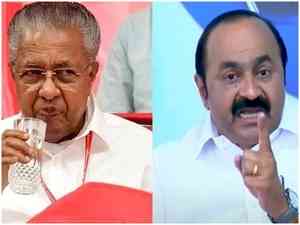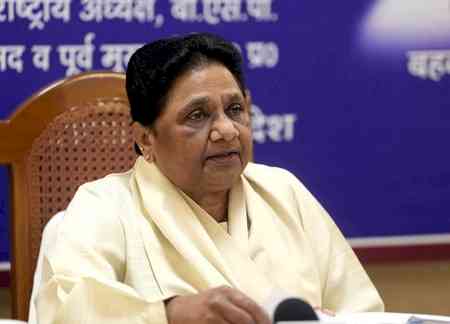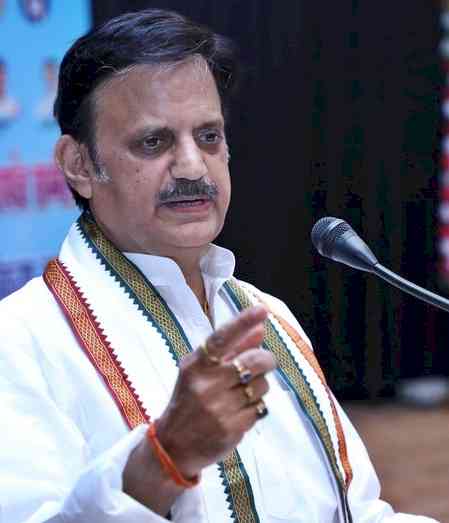At Global South Summit, EAM Jaishankar lays emphasis on achieving SDGs, advancing global progress
External Affairs Minister (EAM) S Jaishankar emphasised four themes - Strengthening economic resilience; Climate change and energy transitions; Revitalising multilateralism; and, Democratising Digital Transformations to achieve Sustainable Development Goals (SDGs) and advancing global progress - at the Foreign Ministers' Session of the 3rd Voice of the Global South Summit held virtually on Saturday.

New Delhi, Aug 17 (IANS) External Affairs Minister (EAM) S Jaishankar emphasised four themes - Strengthening economic resilience; Climate change and energy transitions; Revitalising multilateralism; and, Democratising Digital Transformations to achieve Sustainable Development Goals (SDGs) and advancing global progress - at the Foreign Ministers' Session of the 3rd Voice of the Global South Summit held virtually on Saturday.
In his address on 'Charting a Unique Paradigm for Global South', Jaishankar mentioned that ongoing multiple conflicts and geopolitical tensions in the world continue to particularly impact the nations of the Global South.
"The experience of the pandemic, conflicts and climate events have driven home the necessity for reliable and resilient supply chains. Not just that, there is also an acute need to diversify production itself in various domains to de-risk the international economy. What we earlier argued for in terms of socio-economic justice is today an equally compelling logic for the entire world in terms of predictability," said the EAM while speaking on strengthening economic resilience.
He then mentioned that the risks of climate change, the cost of transition pathways and accessibility to resources are the three big issues of the ongoing debate.
"During our G20 Presidency, we strove to highlight Just Energy Transitions. We must work together as a family towards facilitating the flow of low-cost financing and critical technologies to the Global South," stated Jaishankar.
On revitalising multilateralism, the EAM admitted that it is an "undeniable fact" that even as the global order faced critical challenges, solutions did not emerge from the multilateral domain.
"The reason is both the obsolescence and the polarization of multilateral organisations. Here too, India has argued for reformed multilateralism and sought reform of Multilateral Development Banks through the G20. As a group, we need to press home our case," he said.
Speaking of democratising digital transformations, the EAM said that the Digital Public Infrastructure has been a key driver of the transformation currently underway in India and some of the experiences will be of interest to Global South partners who could also benefit from intra-South digital exchanges and cooperation.
Leaders and representatives of more than 100 countries participated in the conference held under the theme 'An Empowered Global South for a Sustainable Future'.
It began as an extension of PM Modi's vision of 'sabka saath, sabka vikas, sabka vishwas aur sabka prayas’, and is underpinned by India's philosophy of 'Vasudhaiva Kutumbakam'.
The conference discussed the issues of climate change, population growth, food insecurity, financial debt, inequality and conflicts that directly affect developing countries, and discussed the challenges, priorities and solutions in the Global South, especially to ensure sustainable development.


 IANS
IANS 










